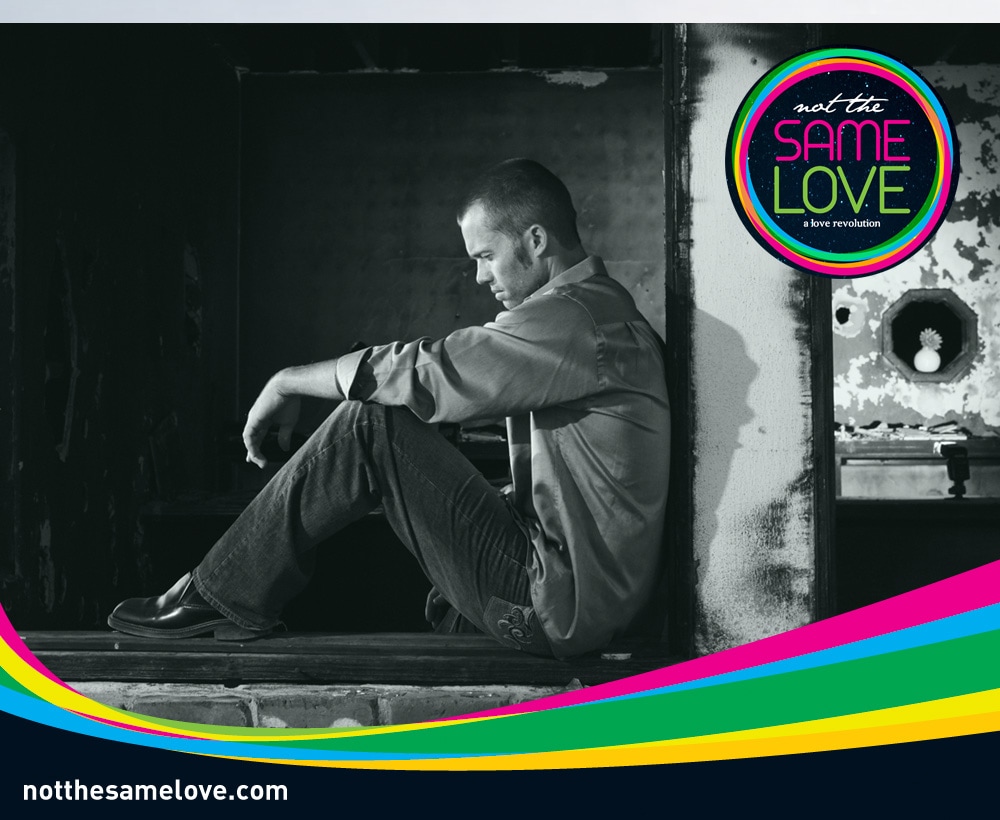|
Ideas have consequences, and bad ideas have victims. False promises of love and personal fulfillment are no exception. Over a year and-a-half after the Obergefell decision, the debate over gay “marriage” and homosexuality has largely fizzled out: partly because of the election, partly because the “T” in the LGBT acronym has been stealing all the headlines, and partly because Obergefell is now viewed by many as settled law. And that’s a shame, because so-called “progress” isn’t bringing about the rosy picture we were promised. In what may be the most candid piece in Huffington Post history, Michael Hobbes, who identifies as gay, writes about what he calls an “epidemic of loneliness.” “For years,” he begins, “I’ve noticed the divergence between my straight friends and my gay friends. While one half of my social circle has disappeared into relationships, kids and suburbs, the other has struggled through isolation and anxiety, hard drugs and risky (behavior).”
Through story after story and mountains of statistics, Hobbes then documents a consistent and chilling trend among those who share his lifestyle. “Gay men everywhere, at every age,” he writes, are two-to-ten-times more likely than heterosexual men to commit suicide. And that’s just the beginning. Homosexual males also suffer from higher rates of cardiovascular disease, cancer, allergies, asthma, and a whole host of behavior-related infections and dysfunctions. They’re twice as likely to experience major depressive episodes, report having fewer close friends, and abuse drugs at an alarming rate. In fact, living in so-called “gay neighborhoods” is a predictor of more frequent, risky behaviors and methamphetamine use. And, Hobbes adds, the community itself is brutal and degrading to its members. Smart-phone hookup apps drive a culture of exploitation and casual encounters that one young man he interviewed said made him feel like “a piece of meat.” We often hear these disastrous statistics and stories attributed to homophobia, bullying, and shame. Having been treated horribly since childhood, men like this author—the oft-repeated myth goes—are forced to live a lie. They’re depressed because they’ve been oppressed and repressed. But here’s the problem with the bullying hypothesis. In countries like the Netherlands and Sweden where same-sex “marriage” has been the law of the land for years, gay men remain three times more susceptible to mood disorders and three- to ten-times more likely to engage in “suicidal self-harm.” The situation is so bad that one respondent in a survey of HIV clinics told researchers, “It’s not a question of not knowing how to save their lives. It’s a question of them not knowing if their lives are worth saving.” Incredibly, after this long and brutal and well-documented description of life in his community, Hobbes then concludes the cause as having minority status, which has taught them to live in fear. At no point does he consider the possibility that it’s the lifestyle itself that may be what’s destroying these men’s lives. Still, one expert quoted in the piece hints that he knows what’s going on. Christopher Stults, a researcher at New York University, admits that for many people, the marriage decision was a letdown. “We have this legal status, and yet there’s still something unfulfilled.” Could it be that this lifestyle cuts off this community from the natural family, from children, and--according to years of statistics—from monogamous partnerships? Could it be the disparity Hobbes sees between what he wants and what he got is a result of a broken lifestyle? Could it be that this behavior naturally isolates people? Could it be that God didn’t design His image-bearers to live like this, and when we do, it actually destroys us? Unfortunately, those questions are no longer even considered by Hobbes or by social scientists. But we as a society, and especially the Church, must consider these questions. As long as there are real people trying to fill their hearts with lies, caring about them will mean having a more open mind than the Huffington Post. BreakPoint
2 Comments
Dr. Bruce and Beth Jones
4/2/2019 12:17:36 am
We are in contact with a couple of mothers of transgender teens. Our burden is to begin a support group for those mothers and the parents/families of gay individuals in the Syracuse NY area. There is one in Binghamton NY.
Reply
Sihol Gianito Situmorang
4/2/2019 01:11:42 am
I just asked a friend who has handled support groups for parents. I will let you know as soon as I get a response from her. Please send me a private message through the contact us form on the homepage: http://www.notthesamelove.com/en.html
Reply
Leave a Reply. |
�
ArchivesCategories |
Not The Same Love is a book about God's redeeming love over homosexuality
Pas Le Même Amour est un livre sur l’amour de Dieu qui nous libère de l’homosexualité
Bukan Cinta Sejenis adalah sebuah buku tentang cinta Tuhan yang membebaskan kita dari homoseks
Il Vero Amore è un libro sull'amore di Dio che ci libera dall'omosessualità


 RSS Feed
RSS Feed